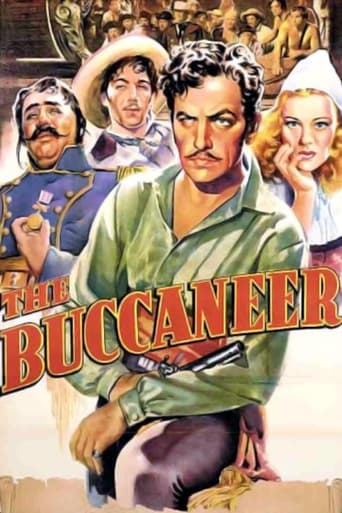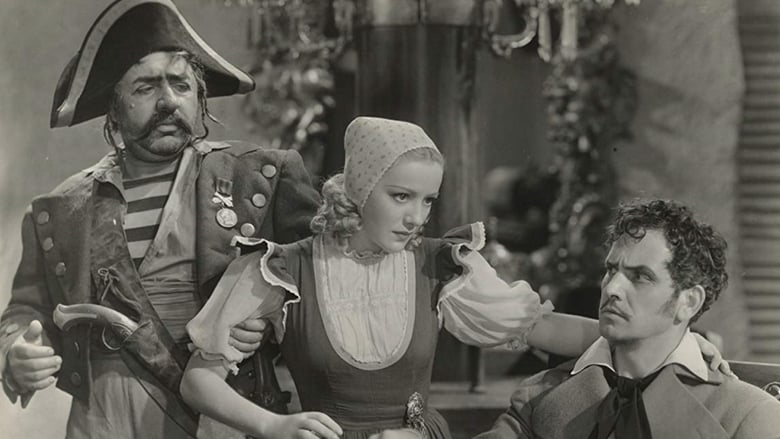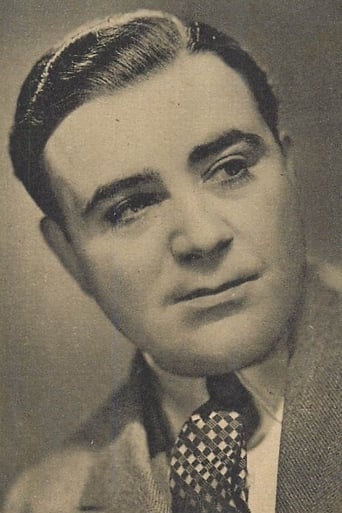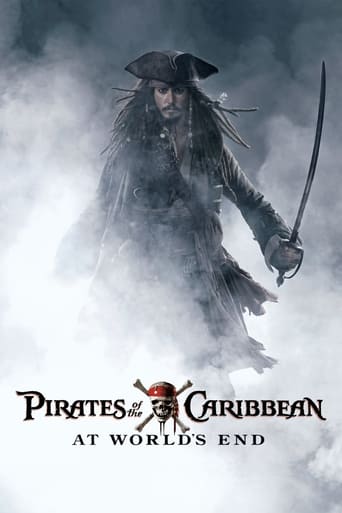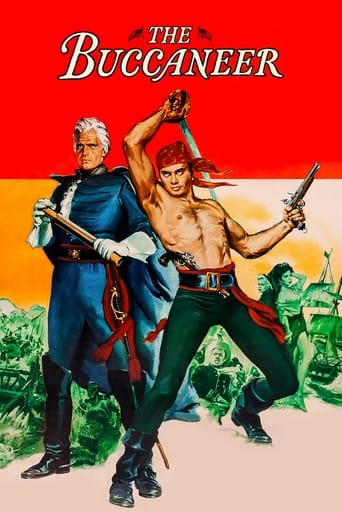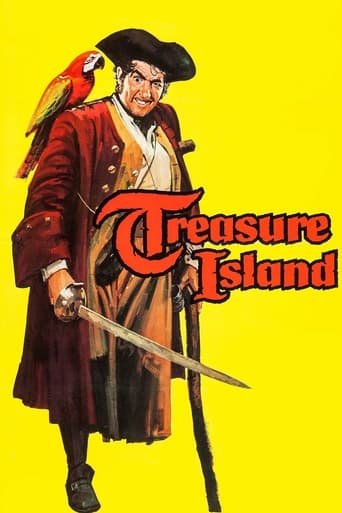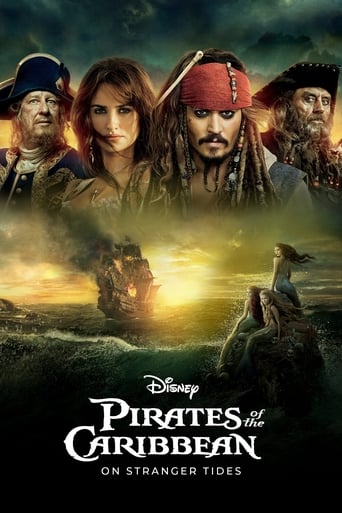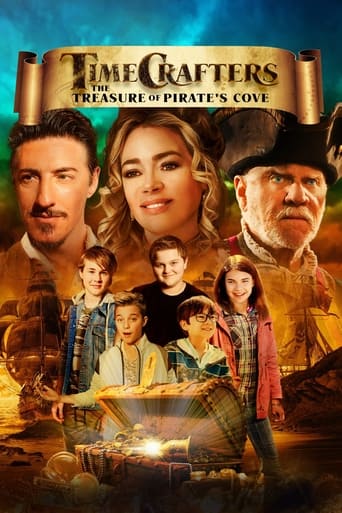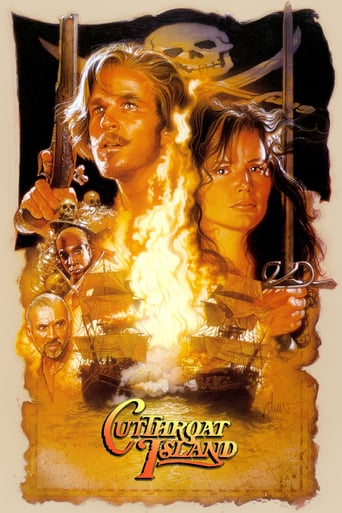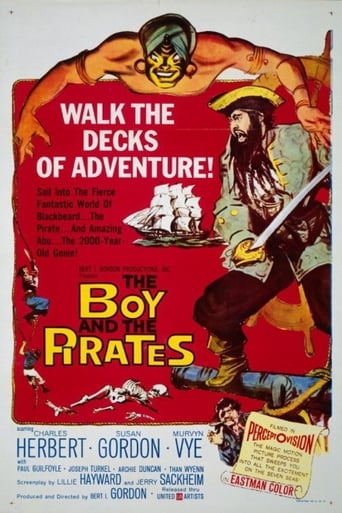The Buccaneer (1938)
French pirate Jean Lafitte rescues a girl and joins the War of 1812.
Watch Trailer
Cast


Similar titles
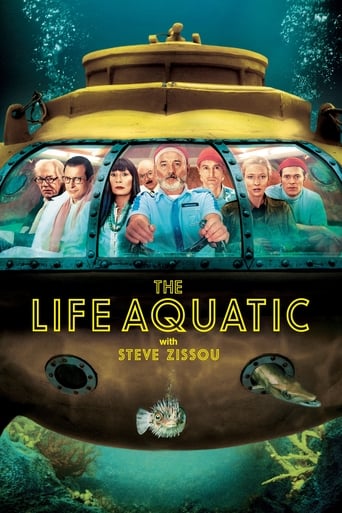
Reviews
Too much of everything
It's funny watching the elements come together in this complicated scam. On one hand, the set-up isn't quite as complex as it seems, but there's an easy sense of fun in every exchange.
When a movie has you begging for it to end not even half way through it's pure crap. We've all seen this movie and this characters millions of times, nothing new in it. Don't waste your time.
Great example of an old-fashioned, pure-at-heart escapist event movie that doesn't pretend to be anything that it's not and has boat loads of fun being its own ludicrous self.
This was the third version I watched of the exploits of French pirate Jean Lafitte, but the first that was made; the others were LAST OF THE BUCCANEERS (1950) and the 1958 remake of the film under review. Interestingly, while De Mille himself produced the latter, he relinquished the directorial reins – presumably because he was too ill for the task – to his son-in-law, actor Anthony Quinn (who had a supporting role in the original!), whose only effort in this capacity it proved to be. For the record, two other cast members were similarly featured in both i.e. Douglass Dumbrille and Jack Pennick.Anyway, this was also the third in my Fredric March epic viewings (with one more to go): it is telling that the star's tendency towards ham (not helped by his adopting a foreign accent – which did not really come into play when he interpreted an Italian in THE AFFAIRS OF CELLINI or a Russian in WE LIVE AGAIN {both 1934}!) was brought out by the director's idiosyncrasies (including a frequent resort to collective singing – albeit of patriotic American songs rather than the usual salty ditties!) that, evidently, were not restricted to his frequent religious ventures. While fine in itself, then, the movie emerges as perhaps the least of De Mille's 1930s spectacles. Incidentally, it had been planned for a local TV broadcast in the mid-1980s which never materialized! As expected, the settings, crowd scenes and action highlights are elaborate as can be; the cast list, too, is extensive – peppered with familiar faces and even a few award-winning actors (a delightful Akim Tamiroff as March's sidekick and a grumpy Walter Brennan, who enters late into the proceedings as his counterpart to General and future American President Andrew Jackson). The latter is effectively played by one Hugh Sothern, who reprised the role a year later for the two-reel short OLD HICKORY. On the other hand, the major female presences (one spunky and the other stately) are decorative more than anything else – the former, Hungarian Franciska Gaal (here being groomed for U.S. stardom but which did not happen), is rather overbearing under the circumstances.The narrative sees privateer Lafitte side with the Americans against the British in the war of 1812; traitorous Senator Ian Keith does his best to make him look bad in the eyes of the people of Louisiana, even having the Navy massacre the pirate band intending to support them!; ultimately, they face-off in a swordfight inside a jail. Eventually, the "boss" reaches an agreement with Jackson, and his contribution (led by former Napoleonic cannoneer Tamiroff's expertise) is vital in repelling the much larger enemy forces. However, when all differences seem to have been settled, an old crime – which a rogue section of Lafitte's men were responsible for but not he personally – resurfaces, so the buccaneer is forced to go into exile, forever roaming the seas Despite its historical pedigree, the film stands as an example of what used to be branded "enjoyable hokum", of which De Mille was a prime exponent; that said, its professionalism is undisputed and, in fact, Victor Milner's cinematography (which, for one night-time rallying sequence, turns sepia) garnered the movie its sole Oscar nomination. By the way, the "Leslie Halliwell Film Guide" erroneously lists this as having a mere 90-minute duration – when, in fact, the TCM-sourced print I watched (exhibiting some picture instability halfway through which, however, were smoothed over upon being replayed!) lasted a good deal more at 126!!
NEWS! This title has just been released in a shoddy copy on DVD. Wait until TCM shows it instead. I watched this film a couple of times while working on my own script. The War of 1812 is pretty much forgotten, except in Canada where it is part of the national identity. This is one of only three films that I know of in that setting.Jeanie Macpherson writes well. From the Burning of Washington to the treachery of people in high places (Senator Crawford may be fictional, but cowardly generals, smugglers and spies plagued the Northern Frontier earlier in the War--aka TREASON), the plot twists result in scenes of true emotional power. The ending is brilliantly foreshadowed so that the audience sees it coming like a runaway train. And the dialogue? Pay attention to the scene in which the pirates do not want to fight with the U.S. but with the British: March is given electric lines to speak. The only thing that I did not like was Dominique You's character. He is a bit too cartoonish.Fredric March gives a very good performance as Lafitte, but Franciska Gaal is wonderful as the dutch girl who loves him.The battle scenes hold up quite well today. This is obviously made by the same director as the magnificent The Crusades and Cleopatra. Its pace is also quicker than the first half of The Ten Commandments (1956).DeMille was at his peak in the 1930s.
Having just moved back to Baton Rouge, La. in 2003 after living in Jacksonville, Fla. for the previous 16 years, I started getting reacquainted with the history of the state I had first lived much of my life from age 7 to 19. One of those sources was from this Cecil B. DeMille account of Louisiana's pirate-hero Jean Lafitte. It was he and his men who helped General Andrew Jackson with his troops defeat the British at The Battle of New Orleans. This was in exchange for a full pardon for him and his men after originally getting a price on his head from the Governor of The Pelican State. Fredric March makes a dashing Lafitte with Akim Tamiroff splendid as his sidekick Dominique. Margot Grahame is Lafitte's fiancée while Franciska Gaal is the Dutch girl Gretchen who falls for Jean after walking the plank from another ship that was lead by a man who betrayed Lafitte. Walter Brennan is funny here as Peavey, a sidekick to General Jackson (Hugh Sothern). Watch what happens when he and Tamiroff have a scene together! Because of some of the accents and the speed of some of the dialogue, I couldn't understand everything that was said but most of the time it was the action that got to me, especially when the American military men initially were attacking Lafitte's men as they were about to welcome them. Grahame and Gaal had their own feminine charms that made either one good chemistry with March so whichever one ended up with him would have been fine. I think I've said enough so I'll just say for anyone who loves a good old-fashioned story with some history thrown in, I highly recommend Cecil B. DeMille's The Buccaneer.
Cecil B. DeMille in 1938 turned his talent for spectacle to the legend of pirate Jean Lafitte and his contribution for saving New Orleans from British occupation in 1815 at the battle that bears the city's name.The ironic part is that the Treaty of Ghent ending the War of 1812 had been signed a few weeks earlier, but news had neither reached the invading army commanded by General Edward Pakenham, brother-in-law of the Duke of Wellington; nor the Americans either in Washington, DC or the civil and military authorities in New Orleans. Had the British won they probably would have stayed for several years, I'm sure they wouldn't have given up so valuable a possession as the city that controlled the mouth of the Mississippi river.Jean Lafitte is one of those characters not from antiquity about whom we know neither the date of his birth or death. He was born either in France or Haiti around 1780 and probably died sometime in the 1840s. As soon as the Louisiana territory was purchased from France, he set himself up in business nearby New Orleans in the swamps of Barataria and did a flourishing business in the smuggling trade. He may have had as many as a thousand men under his command.Even after the fledgling American Navy attacked his stronghold, Lafitte for reasons of his own sided with the Americans in the fight for New Orleans that had nothing to do with the fictional romance portrayed in The Buccaneer. He did however provide men and supplies to Andrew Jackson's army and may have tipped the balance of the fight. Though he got a pardon as shown in the film, he resumed his pirate ways and eventually left New Orleans for Galveston Island. Eventually he was driven out of there in the next decade and after that we have no idea what really happened to him, though there is speculation.Fredric March makes a dashing Jean Lafitte and DeMille staged the battle up to his usual high standards of spectacle. In addition to the fictitious romance between Lafitte and the Governor of Louisiana's daughter played by Margot Grahame, the other part of the film that is wholly fictional is that involving the traitorous United States Senator played by Ian Keith. No such a person was around New Orleans, though there was an anti-war movement breaking out here, but in New England which saw its commercial trade ruined by both Jefferson's Embargo and the War of 1812.One thing that DeMille didn't do either in this film or the remake in 1958 was focus on Pakenham. The army that went to its slaughter in the swamps near New Orleans in a headlong assault were a veteran bunch of troops who had fought in the Peninsular War against Bonaparte. The commander was a much beloved brother-in-law of the Duke of Wellington and he fell gallantly leading his men. Wellington thought of Ned Pakenham more like a kid brother of his own than his wife's brother. He took the news of the defeat pretty badly. In fact the news cast a pall over Great Britain so recently celebrating Napoleon's exile to Elba. Fortunately they and Wellington recovered to route Bonaparte in his comeback attempt at Waterloo. Walter Brennan has a nice role as Andy Jackson's personal aide and Hugh Sothern is an impressive Jackson. DeMille introduced actress Franciska Gaal from Hungary in the role of castaway passenger from a ship that was plundered by one of Lafitte's ships. She didn't make much of an impression on the American public, perhaps it was her thick Magyar accent. After a film with Bing Crosby the following year, Paris Honeymoon, Gaal returned to Europe just in time for World War II and to a country allied with the Axis at that point. She was not heard from again on film.When the remake came out in 1958, Paramount shelved this version of The Buccaneer and was rarely shown for the rest of the century. I got to see it during a TCM retrospective of Cecil B. DeMille. It's good DeMille, but far from good history.

